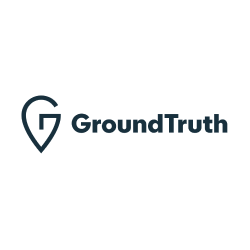Dive Brief:
-
The amount of money grocery retailers get through the Supplemental Nutrition Assistance Program can be released without causing unfair competition, a three-judge panel of the 8th U.S. Circuit Court of Appeals ruled Tuesday.
-
Argus Leader Media, which publishes the Argus Leader newspaper in Sioux Falls, South Dakota, filed a complaint to get the information in 2011 after the U.S. Department of Agriculture refused to release it under the Freedom of Information Act. When a lower court sided with the newspaper and USDA declined to appeal, grocery industry group the Food Marketing Institute intervened last year with an appeal to the 8th Circuit. The National Grocers Association then filed an amicus brief on behalf of FMI. "We are disappointed with the judge’s decision and maintain that non-disclosure of personally identifiable information is important to protect individual stores and to protect individual customers," FMI said in a statement emailed to Food Dive. "We will continue to fight to protect the privacy of our individual stores and their customers.”
-
"It’s been seven years battling for access to this public information, and we’re pleased SNAP sales figures will finally be made available," Cory Myers, news director for the Argus Leader, said in a news story. "As I’ve said before, at its heart, this is about fundamental rights. Taxpayers need to know where their money is spent. This information has importance beyond South Dakota as SNAP is one of the nation’s biggest safety net programs."
Dive Insight:
The industry groups took the position that releasing federal payment data would give competitors an unfair advantage by revealing sensitive, confidential information about the financial position of retailers participating in the SNAP program. They were also concerned that the information would unfairly single out stores serving a poorer customer base.
However, Judge Jane Kelly, who wrote the appeal panel's decision, saw things differently.
"FMI’s assumption that stores would be stigmatized was speculative and not supported by any other evidence in the record. There was also no meaningful evidence that retailers would end their SNAP participation if the contested data were released," she wrote.
Peter Larkin, NGA's president and CEO, said data on store sales are proprietary information regardless of whether the data came from a SNAP transaction or not. He also suggested a federal solution to issues in the case might be in order.
"The supermarket industry is highly competitive and any public disclosure of this sales information could give competitors an unfair advantage, particularly over many small and medium size grocers, in addition to stigmatizing stores that serve low income communities," he said in a statement following the appeals court decision. "This adverse court ruling underscores the importance of advancing a legislative solution to this problem, such as the House Farm Bill, which protects store-level SNAP data from public disclosure."
Larkin was referring to the latest U.S. House Agriculture Committee version of the Farm Bill, which would specifically exempt the public release of retail sales transaction data if it is specific to a retail food store, its location, a person, or other entity.
Unless Congress passes the Farm Bill with that exemption language included, SNAP payment data may likely be released by USDA under this decision. It's possible that FMI and NGA will appeal the decision to the U.S. Supreme Court, but since the nation's highest court accepts fewer than 100 cases each year, the case making it before the justices is less likely than a legislative exemption.
Meanwhile, stores wanting to keep SNAP payment data from public disclosure could stop participating in the program. However, since about 260,000 retailers nationwide — from supermarkets to local grocery stores to farmers markets and convenience stores — take part in the program and redeemed about $63.3 billion in SNAP benefits in fiscal 2017, that scenario isn't practical.









